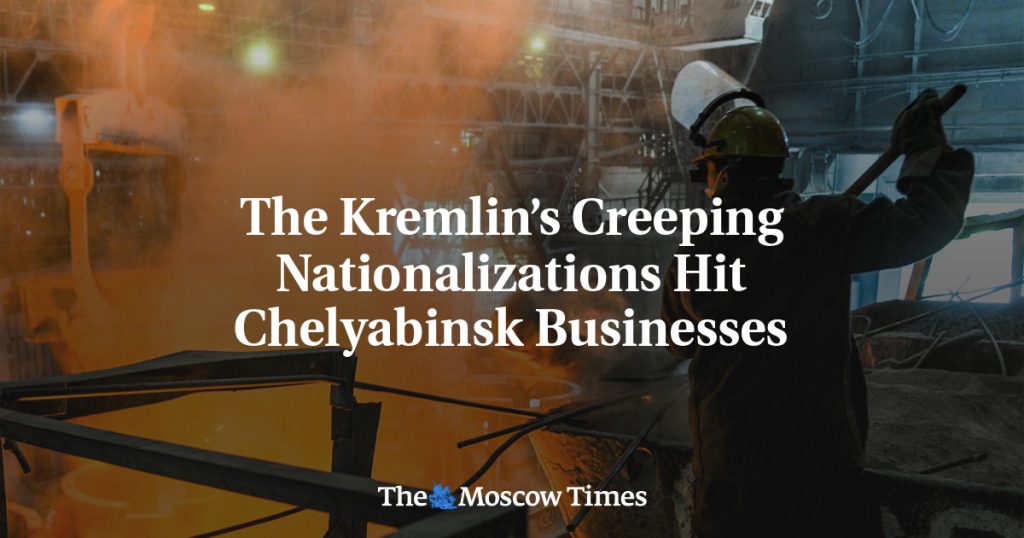The Kremlin’s wartime campaign of forced nationalization has heavily impacted the Ural Mountains region of Chelyabinsk, a major industrial center, since the invasion of Ukraine in February 2022. Russian prosecutors have targeted 55 enterprises in the region, including metals plants, chemicals, agribusinesses, and even a car dealership for compulsory state takeover. Recently, assets owned by Chelyabinsk’s top businessmen and politicians have been subject to nationalization suits in hasty proceedings in Russian courts, with analysts agreeing that these assets are likely to be transferred to regime loyalists.
In late March, Russian prosecutors announced the nationalization of two major Chelyabinsk businesses — Russia’s most famous pasta brand Makfa and the country’s largest winemaker the Ariant group. These cases followed the nationalization of the Chelyabinsk Electro-Metallurgical Plant in February, which produces 80% of Russia’s ferroalloys. The pretexts for these nationalizations range from claims of unlawful privatization to enterprises coming under foreign control and alleged breaches of Russian anti-corruption legislation.
The nationalization trend in Russia could be seen as creating a new interest group of winners among the Russian elite who are fully invested in the war’s continuation. Prosecutors allege that the Chelyabinsk Electro-Metallurgical Plant was unlawfully privatized in the 1990s and had been exporting its products to unfriendly states. The plant owner is contesting the nationalization suit, with the plant potentially being transferred to Rostec, the state defense conglomerate. A separate case has also been extended to the Ariant group, an agribusiness and wine company with vineyards in southern Russia.
Forced nationalizations in Russia have caused concern among the big business community, with leading businessmen reportedly bringing the issue to President Vladimir Putin. In a rare burst of criticism, the Moscow Stock Exchange expressed concern about a specific nationalization case involving the Solikamsk Magnesium Works. Putin has sought to reassure Russian big business that there will be no full-scale deprivatization, stating that nationalization is justified when assets are acquired in violation of the law and used to harm the state.
At a meeting with the General Prosecutor’s Office, it was revealed that prosecutors had already nationalized 1 trillion rubles worth of strategic assets, alleging that some companies had been financing Ukraine’s war effort. However, no evidence has been provided for the claims. Analysts believe that the nationalization campaign has renewed long-standing issues surrounding the rule of law and property rights for major investors in Russia. There are concerns about growing political pressures to mobilize the economy more effectively without changing institutional structures.
While some experts caution against alarmist interpretations of the nationalizations, others point out that there are clear limitations to the trend. Most cases of nationalization seem to have strategic considerations, particularly in relation to the assets being targeted. It is noted that the assets taken away are going to the usual suspects in Russia, rather than a completely new elite emerging. The nationalization trend in the country sheds light on the challenges faced by major investors and the impact of the crisis on property rights and the rule of law in Russia.


